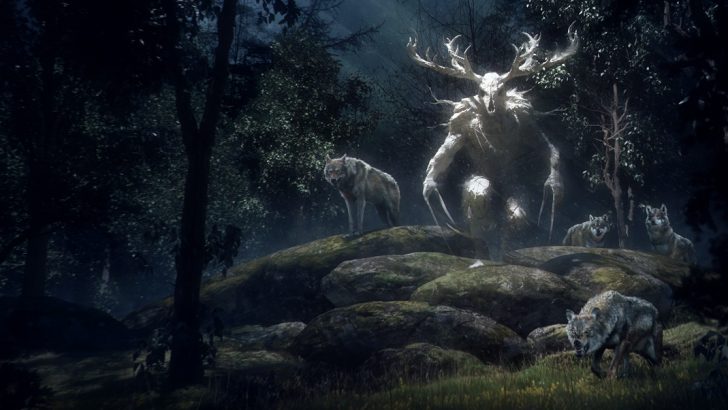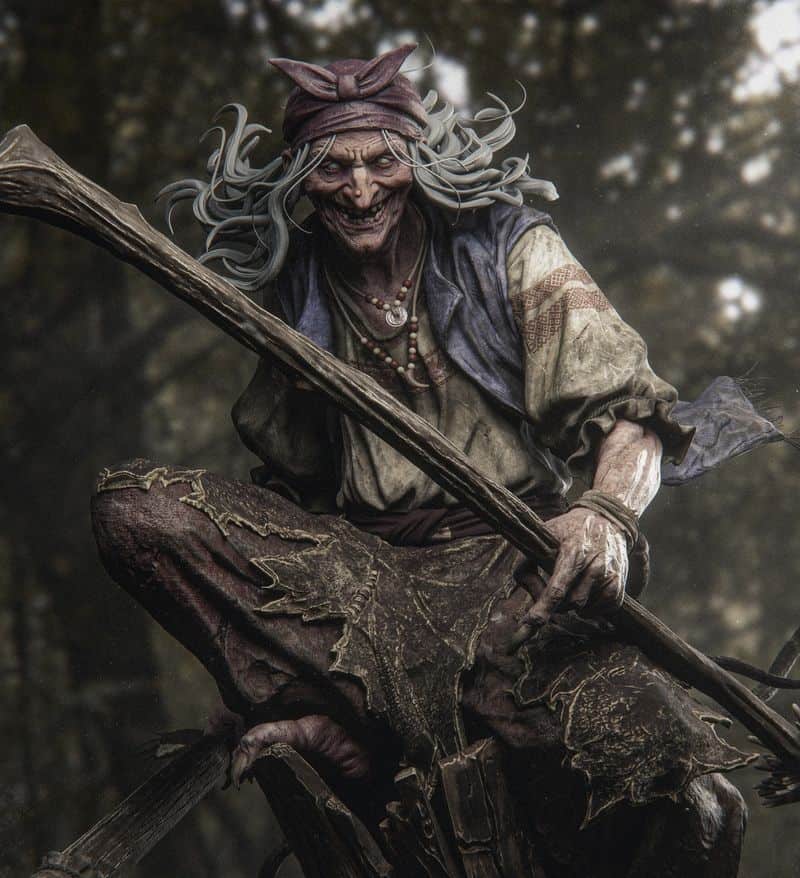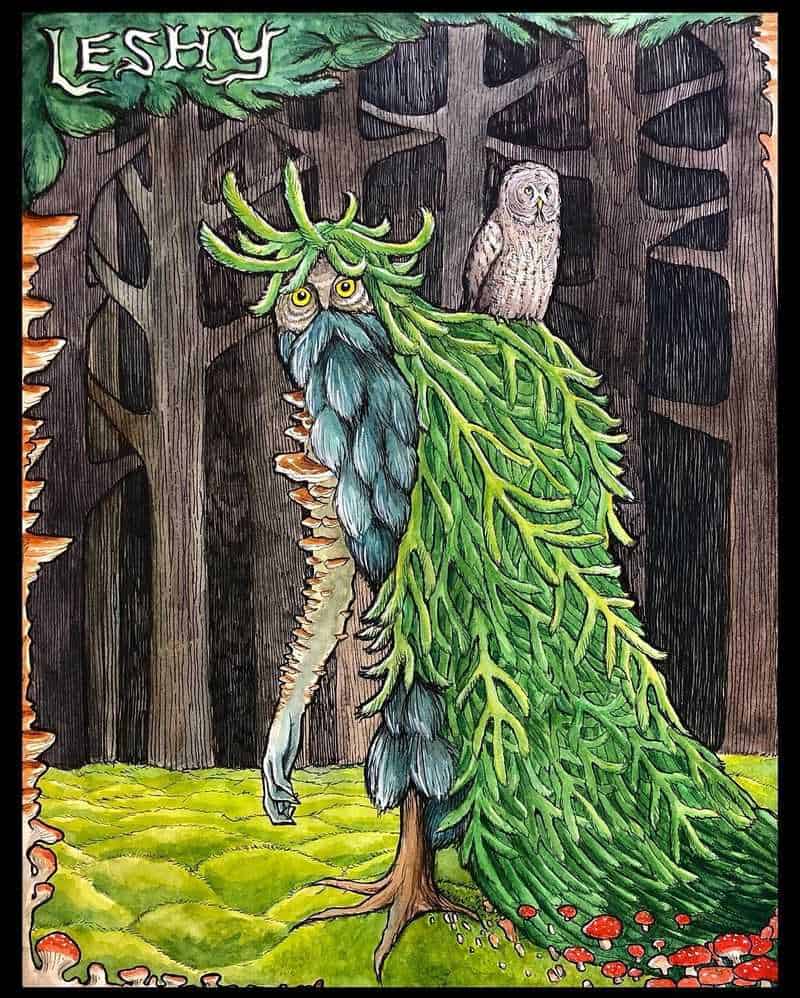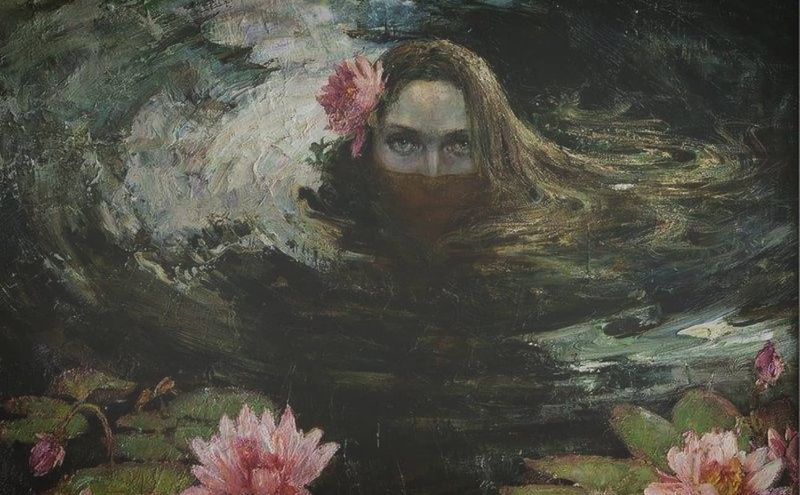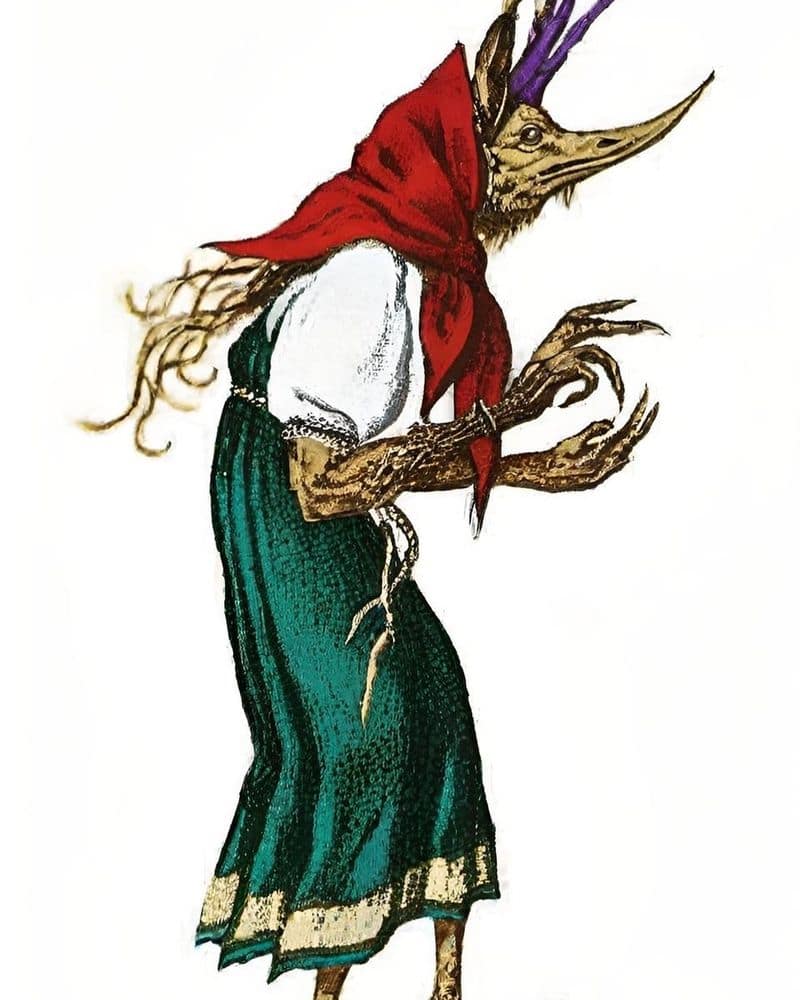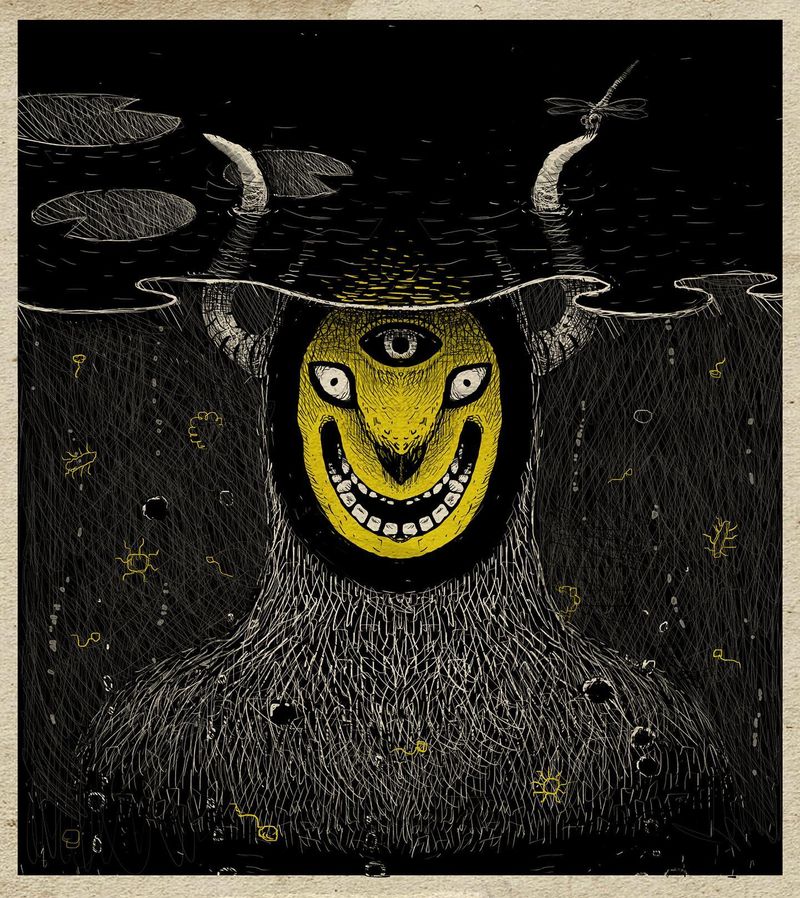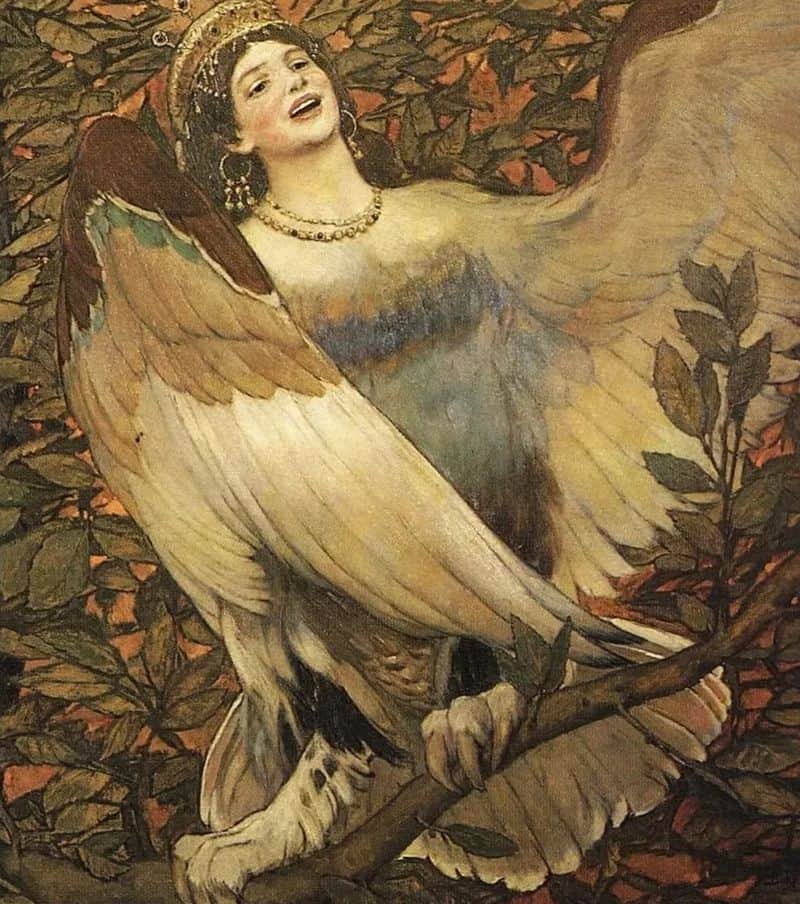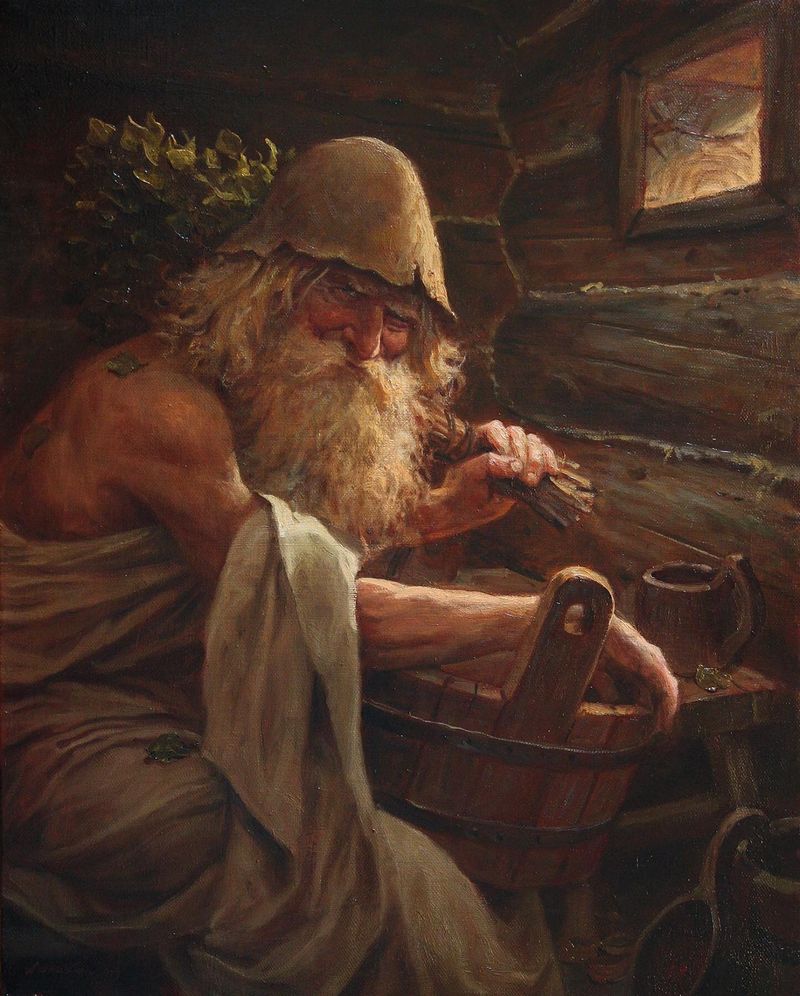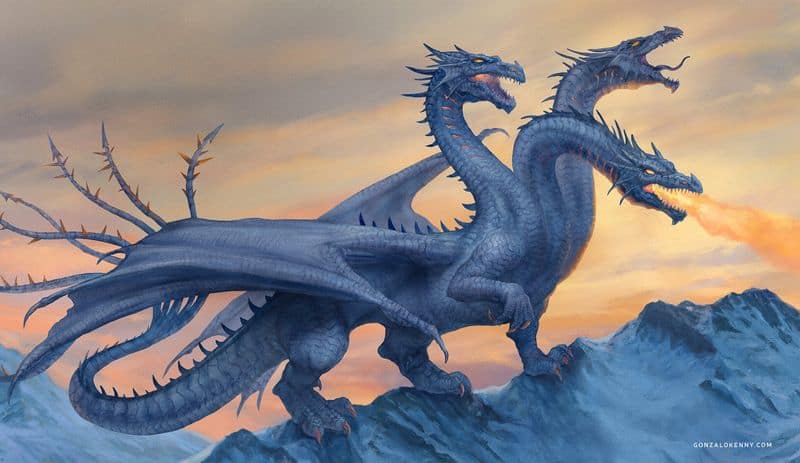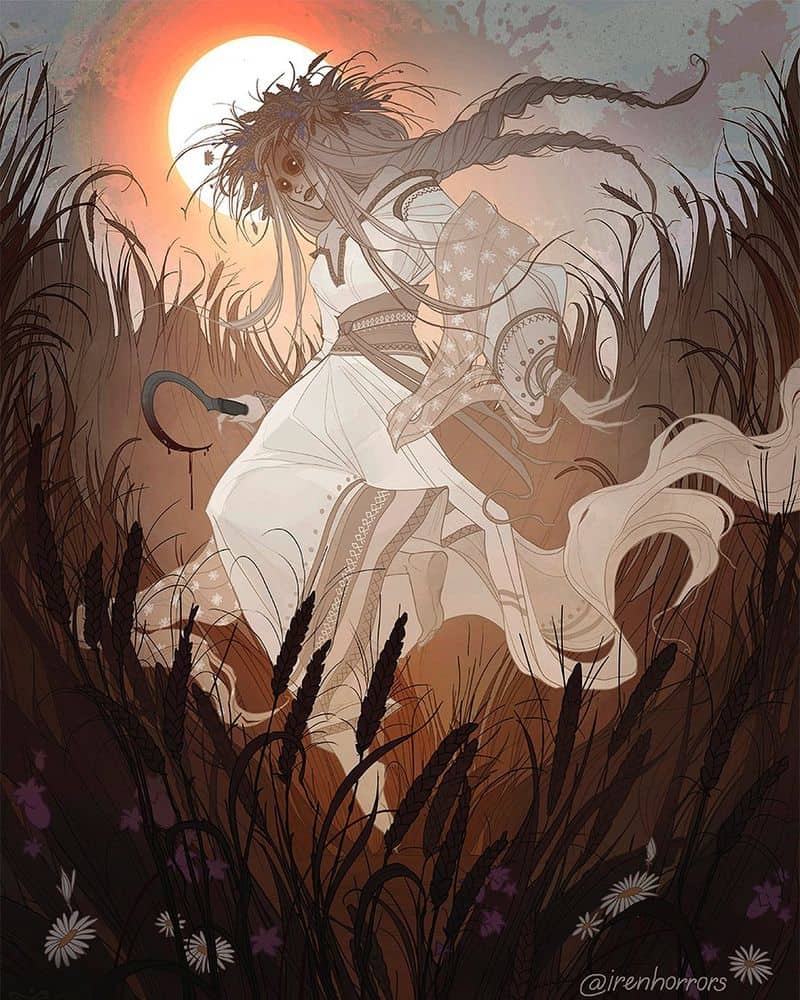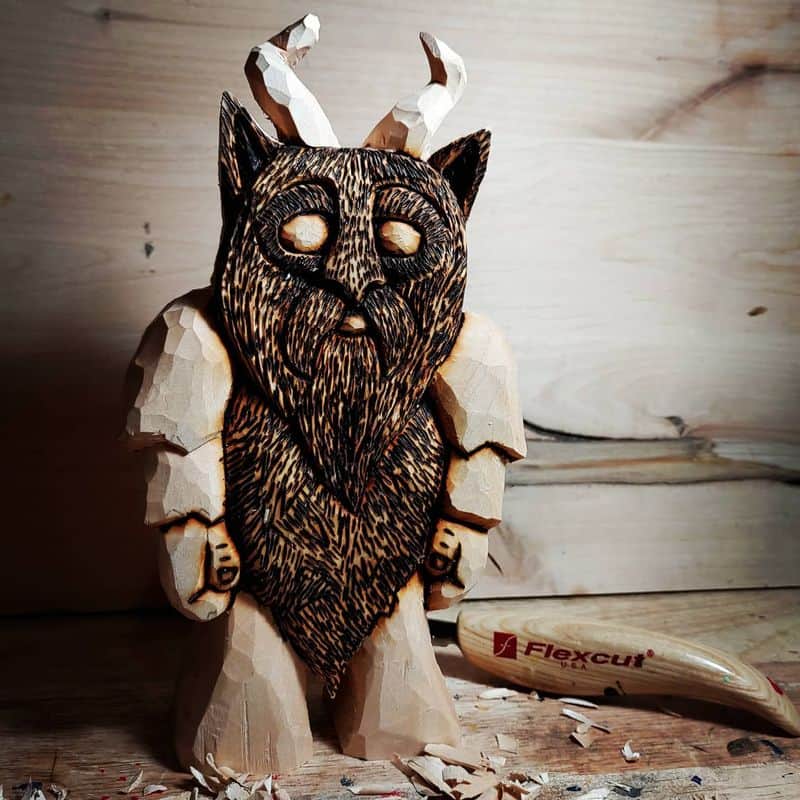Deep in the forests and rivers of Eastern Europe, Slavic mythology created a world filled with magical beings beyond our imagination.
These creatures shaped how ancient Slavic people understood natural forces and explained mysteries in their daily lives.
From protective spirits to fearsome monsters, these mythological beings continue to fascinate us today with their unique powers and symbolic meanings.
1. Baba Yaga: The Forest Witch
Flying through the night sky in a mortar and pestle, Baba Yaga strikes fear into the hearts of children across Slavic lands. Her chicken-legged hut rotates to face visitors, deciding their fate before they even knock on her door.
Unlike simple villains, this ancient crone serves as both helper and hinderer. She tests heroes with impossible tasks, rewarding those pure of heart while punishing the wicked or foolish.
Her fence of human bones and skull lanterns warns of her dangerous nature, yet many seek her wisdom. Ancient stories tell of her controlling the sun itself, suggesting she once held even greater power as a forgotten goddess of death and rebirth.
2. Leshy: Guardian of the Woods
Masters of disguise, Leshy spirits protect the wild places from human intrusion. Standing as tall as the trees one moment, shrinking to grass-height the next, these forest guardians constantly change their appearance to confuse trespassers.
Their eyes glow like embers in the darkness, and they can mimic the voices of loved ones to lure the unwary deeper into the woods. Hunters once left offerings before entering forests, hoping to gain Leshy’s blessing for a successful hunt.
Despite their fearsome reputation, they primarily punish only those who disrespect nature. Mushroom gatherers who knew proper forest etiquette might even receive Leshy’s help finding the richest patches of fungi.
3. Rusalka: The Vengeful Water Nymph
Pale as moonlight with flowing green hair like water weeds, Rusalki emerge from lakes and rivers on summer nights. Their haunting songs entrance young men, drawing them to watery graves beneath the rippling surface.
These weren’t always malevolent creatures. Most Rusalki began as young women who died tragically—drowning victims, suicides, or brides who perished before their weddings. Their unfinished lives left them trapped between worlds, filled with longing and resentment.
Villagers once hung ribbons and cloth in riverside trees during Rusalka Week as offerings to appease these spirits. Some regions believed that after seven years as water spirits, Rusalki could finally find peace and move on to the afterlife.
4. Kikimora: The Household Mischief-Maker
Lurking behind stoves and in dusty corners, Kikimora watches how you tend your home. This tiny woman with chicken legs and a bird’s beak rewards tidy housekeepers but torments the slovenly with nightmares and broken dishes.
At night, you might hear her spinning wheel’s eerie creaking—a sound bringing good fortune if melodious but foretelling disaster if discordant. Families once left small bowls of milk near the hearth to keep her content.
Kikimora’s origins vary across Slavic regions. Some believed she was the invisible wife of the male house spirit Domovoy, while others thought she embodied the restless soul of a child who died unbaptized, forever bound to the home where they perished.
5. Vodyanoy: The Drowning Man
Covered in slime and algae, the frog-faced Vodyanoy rules the underwater realm with webbed fingers clutching the souls of the drowned. Old fishermen claim his bulging eyes sometimes peer from beneath the surface, studying potential victims before pulling them under.
Unlike his beautiful female counterparts, the Rusalki, this water spirit never leaves his watery domain. Mills built over flowing water particularly attract him, as he delights in breaking water wheels and drowning millers who refuse to pay him tribute.
Blacksmiths once forged special crosses to protect bridges from his wrath. Some villages maintained the tradition of sacrificing a black rooster at the spring thaw to satisfy Vodyanoy’s hunger and ensure safe passage across rivers throughout the year.
6. Alkonost: The Paradise Bird
Half-woman, half-bird, the Alkonost sings melodies so beautiful that listeners forget everything—even their own names. Her feathers shimmer with every color imaginable, changing hue as she moves between our world and paradise.
Unlike many Slavic spirits, the Alkonost brings joy rather than misfortune. Her rare appearances herald momentous events, and hearing her song brings temporary bliss to mortals. Ancient Russians carved her image on wedding chests as a blessing for harmony.
Sailors feared the storms caused when she laid her eggs at sea, yet treasured any feathers found floating afterward. These feathers, believed to hold fragments of paradise, were sewn into amulets to protect children from illness and bring prophetic dreams to those who slept with them under their pillows.
7. Bannik: The Bathhouse Spirit
Steam swirls around the naked, bearded Bannik as he guards the sacred space between worlds. Ancient Slavs believed bathhouses existed at the boundary between the living and spirit realms, making them places of both purification and danger.
Tradition dictated leaving the fourth round of steam bathing for Bannik’s personal use. Brave souls who peeked through the window might glimpse their future—but risked having their skin flayed if caught spying on the spirit’s private time.
Expectant mothers sought Bannik’s blessing before giving birth in the bathhouse, offering soap and clean towels. His temperament reflected the homeowner’s character; kind families enjoyed his healing touch, while cruel ones suffered painful welts from his invisible switches.
8. Zmey Gorynych: The Three-Headed Dragon
Belching fire and poison from three serpentine heads, Zmey Gorynych terrorized Slavic lands from his mountain lair. Each head possessed different powers—one breathed flames, one spewed acid, and one cast illusions to confuse heroes who sought to slay him.
Unlike Western dragons who hoarded gold, Zmey Gorynych collected beautiful maidens, transforming into a handsome youth to lure them away. His scales could repel ordinary weapons, making him nearly invincible against all but the most clever or blessed warriors.
Folklore describes him as the son of the wind and a snake, explaining his ability to soar through skies despite his massive size. Some tales suggest he served as guardian to the entrance of the underworld, testing whether souls were worthy to pass.
9. Poludnitsa: Lady Midday
Shimmering like a heat mirage, Poludnitsa appears in wheat fields when the summer sun reaches its zenith. Her white dress and golden scythe blend with ripening grain as she watches for those who dare work during the sacred noon hour.
Farm families warned children against playing in fields at midday, knowing Poludnitsa’s tests could turn deadly. She approached workers with difficult riddles or farming questions, rewarding correct answers with bountiful harvests but striking those who failed with heatstroke or madness.
Some regions believed she protected pregnant women who rested at noon, blessing their unborn children with strong constitutions. Agricultural communities held special midsummer feasts in her honor, leaving the first harvested sheaf standing as her throne until the fields were completely reaped.
10. Domovoy: The Household Protector
Shuffling through darkened hallways after the family sleeps, the grandfatherly Domovoy tends to household matters often overlooked. His furry, diminutive form might be glimpsed near the stove—the heart of traditional Slavic homes—where he judges whether the family deserves his protection.
Considerate homeowners left milk and bread in the kitchen corners for their Domovoy. In return, he warned of impending danger by wailing, moving objects, or appearing in dreams. Each house contained its own Domovoy, often believed to be the spirit of the family’s first ancestor who built the home.
When families moved, they formally invited their Domovoy to join them, carrying embers from the old hearth to light the new one. Without this ritual, the abandoned spirit might become vengeful, while the new house’s resident Domovoy would reject the newcomers.

